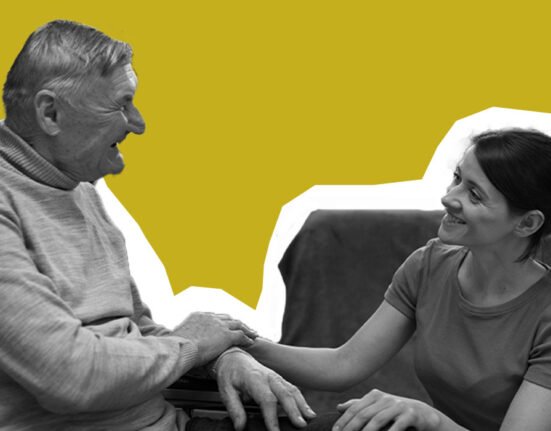The father of psychoanalysis, Sigmund Freud, proposed several intriguing yet debatable ideas. Defence mechanisms are a popular concept and represent unconscious coping methods that distort reality to deal with anxiety-provoking events. Often, many display childlike behaviours during stressful events, such as thumb-sucking, throwing tantrums and bed-wetting. These behaviours represent the defence mechanism of regression and involve returning to immature behaviour to deal with anxiety.
As Freud (1916) used the talking cure to help his patients, he found that they often associated their traumatic events with some childhood experiences and termed the process as regression. He emphasised how returning to the past or “a regressive direction” is the core characteristic of psychoanalysis.
Read More: What is Age Regression? Understand its role in behavior
Understanding Regression
According to the American Psychological Association, regression includes reverting back to a “lower state of cognitive, emotional, or behavioural functioning.” Freud specified that an individual goes through five stages of psychosexual development from infancy to early childhood. The psychoanalytic theory proposes that an individual displays immature behaviour or returns to a prior psychosexual developmental stage when faced with distressing external or internal conflicts. Freud believed regression is rooted in frustration concerning psychosexual developmental stages and individuals handle the frustration by regressing to the developmental stage.
In Children
Regression is a common developmental process, resulting from children becoming overwhelmed with achieving a new developmental milestone and leaving their comfort zone. Regression acts as a safety blanket for toddlers and preschoolers as they learn to adjust to novel environments such as attending preschool. Caregivers should rely on supportive parenting along with introducing healthy coping mechanisms to children over ignoring the child’s behaviour to facilitate healthy development. For instance, soothing temper tantrums with reassurance and patience instead of dishing out punishments. While regression is normal during early childhood, parents should seek professional help if the child continuously displays regressive behaviour beyond two to three weeks.
In Adults
Adults, too, regress when faced with stressful events in search of a secure and protected emotional state. For instance, many enjoy cuddling with stuffed toys when distressed and vulnerable. Researchers report that younger adults about twenty years and older display more regressive behaviour than older adults since regression is perceived acceptable among the former cohort and maladaptive among the older cohort. Longitudinal analysis shows that regressive behaviour decreases throughout childhood as individuals gradually learn adaptive coping strategies but increases after the age of 65 years.
Manifestations of Regression
In children, regression manifests as excessive attachment to caregivers, separation anxiety, crying, tantrums and bed-wetting in response to frustrating situations. In adults, it manifests as wearing children’s clothing, exhibiting childlike behaviour such as cuddling with toys and thumb-sucking and becoming aggressive to cope with anxiety.
Regression is closely associated with the concept of fixation–the inappropriate attachment to a specific psychosexual developmental stage and the associated mode of gratification. Psychoanalysts propose that regressive behaviour correlates with the developmental stage one fixates on.
- Oral fixations produce oral: passive behaviours, such as thumb-sucking and baby-talk, and oral-aggressive behaviours, such as being verbally aggressive.
- Anal fixations produce anal: retentive behaviours, such as extreme orderliness, and anal-explosive behaviours, such as high disorganisation and untidiness.
Read More: Theories of Aggression: Understanding the Roots of Violent Behavior
Using a Positive Lens: ARISE
Psychiatry Professor Joel Gold emphasises that the adaptive use of regression reinforces creativity and terms it “Adaptive Regression in the service of the Ego” or ARISE. It involves engaging in diverse activities such as play, enjoying primitive pleasures and using imagination, allowing individuals to process thoughts and impulses less like adults.
Joel’s positive conceptualisation of regression is based on how Psychoanalyst Ernst Kris perceived regression as serving the ego through creative pursuits by unlocking the ego’s adaptive functions like inspiration. Clinical psychologist Danielle Knafo highlights how genius artists such as Picasso and Miro purposefully attempted to draw like a child to create simple yet fresh and primitive artistic pieces. Hence, it is essential to distinguish between ego regression and maladaptive regression.
Managing Regression
- Psychoeducation: Regression is common among individuals who experience poor parental responses, such as ignorance and punishments. Psychoeducation involves educating parents to recognize the signs of regression and adequately address them through reassurance and building a secure environment.
- Psychotherapy: It addresses the underlying unconscious unmet needs that precipitate regressive behaviours. Behavioural interventions are effective in reducing regressive defence responses such as aggressive fits. At times, hypnosis therapy is employed, allowing individuals to process traumatic experiences that manifest as regression.
- Stressful management: Learning effective stress management techniques such as mindfulness and meditation helps individuals become aware of the stressors that produce anxiety and result in regressive behaviours. Accordingly, one can develop adaptive coping mechanisms that address the root cause of anxiety.
- Medications: Many psychiatric and neurological conditions such as mood disorders, dementia, schizophrenia and post-traumatic stress disorder produce involuntary regressive behaviours such as curling into foetal positions and experiencing emotional fits. In such cases, using medications to address the underlying conditions reduces regression, like administering mood stabilisers to patients with mood disorders.
Regressive behaviours such as using baby talk with partners are reinforced due to the resulting short-lived relief from stressful events. Researcher Weinstock found that regression sometimes helps cope with stressful life events. However, it is associated with immature moral judgement, higher stress levels and aggressive tendencies. Hence, it is a primitive coping mechanism because regression fails to resolve the underlying cause of anxiety.
FAQs
What is the theory of regression in psychology?
It is a defence mechanism that involves reverting back to a “lower state of cognitive, emotional, or behavioural functioning.” The psychoanalytic theory proposes that an individual displays immature behaviour or returns to a prior psychosexual developmental stage when faced with distressing external or internal conflicts.
What is an example of regression?
In children, regression manifests as excessive attachment to caregivers, separation anxiety, crying, tantrums and bed-wetting in response to frustrating situations. In adults, it manifests as wearing children’s clothing, exhibiting childlike behaviour such as cuddling with toys and thumb-sucking and becoming aggressive to cope with anxiety.
How to deal with regression?
There are several methods to address it. Psychoeducation involves educating parents to recognize the signs of regression and adequately address them through reassurance and building a secure environment. Psychotherapy addresses the underlying unconscious unmet needs that precipitate regressive behaviours. Learning effective stress management techniques such as mindfulness and meditation helps individuals become aware of the stressors that result in regressive behaviours. Lastly, medications are administered if regressive behaviour is a symptom of any psychiatric and neurological condition.
Can regression be adaptive?
It is essential to distinguish between ego regression and maladaptive regression. Psychiatry professor Joel Gold emphasises that the adaptive use of regression reinforces creativity and terms it “Adaptive Regression in the service of the Ego” or ARISE. It involves engaging in diverse activities such as play, enjoying primitive pleasures and using imagination, allowing individuals to process thoughts and impulses less like adults.
References +
- American Psychological Association. (2018). APA Dictionary Of Psychology. Retrieved from https://dictionary.apa.org/
- Britannica, T. Editors of Encyclopaedia (2020, February 18). repression. Encyclopedia Britannica. https://www.britannica.com/science/repression-psychology Costa, R.M. (2020). Regression (Defense Mechanism). In: Zeigler-Hill, V., Shackelford, T.K. (eds) Encyclopedia of Personality and Individual Differences. Springer, Cham. Diehl, M., Chui, H., Hay, E. L., Lumley, M. A., Grühn, D., & Labouvie-Vief, G. (2014). Change in coping and defence mechanisms across adulthood: longitudinal findings in a European American sample. Developmental psychology, 50(2), 634.
- Frager, R. (2007). Personality and personal growth. Pearson Education India. Freud, S. (1916). The history of the psychoanalytic movement. The Psychoanalytic Review (1913-1957), 3, 406.
- Knafo, D. (2002). Revisiting Ernst Kris’s concept of Regression in the service of the ego in art. Psychoanalytic Psychology, 19(1), 24.
- Lokko, H. N., & Stern, T. A. (2015). Regression: Diagnosis, Evaluation, and Management. The primary care companion for CNS disorders, 17(3).
- Segal, D. L., Coolidge, F. L., & Mizuno, H. (2007). Defence mechanism differences between younger and older adults: A cross-sectional investigation. Ageing and mental health, 11(4), 415-422.
- Vinney, C. (2024, June 7). Why You May Act Immature During Anxiety-Provoking Situations: You may be regressing and not know it. Verywellmind. https://www.very wellmind.com/what-is-regression-in-psychology-5198737#citation-5
- Weinstock, A. R. (1967). Family environment and the development of defence and coping mechanisms. Journal of Personality and Social Psychology, 5(1), 67.













Leave feedback about this